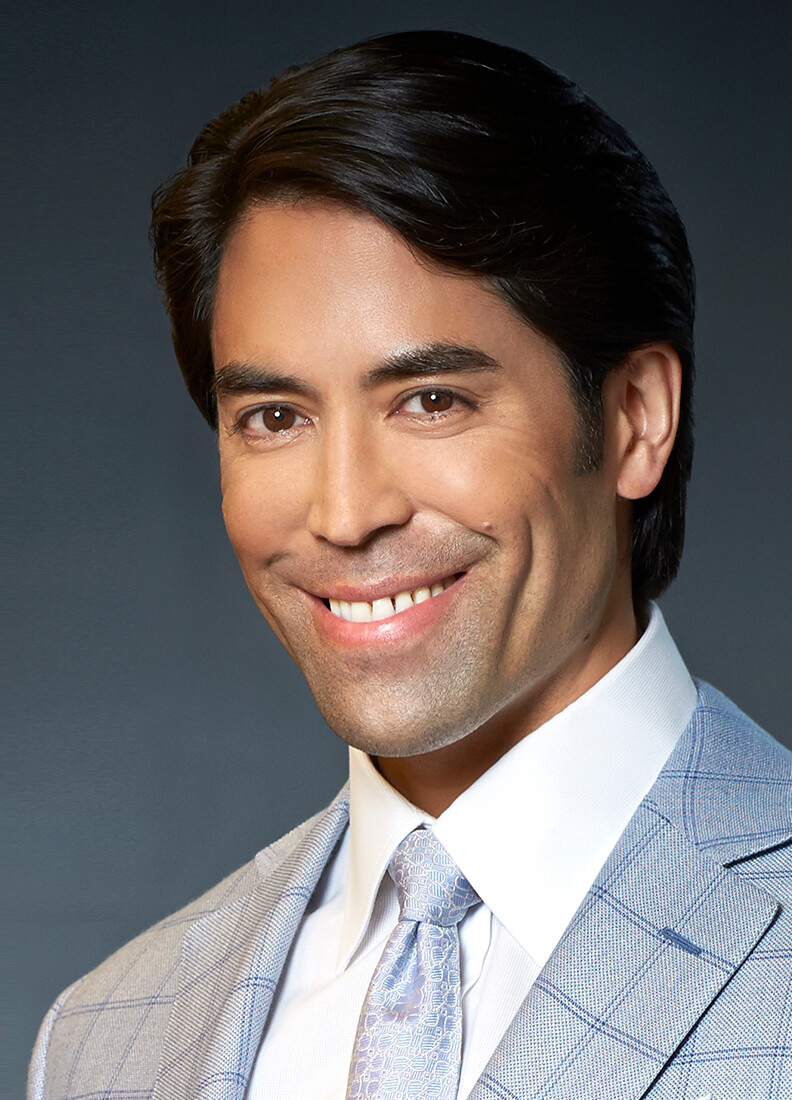Renowned Plastic Surgeon Urges Public to Prioritize Safety, Board Certification, and Evidence-Based Care
WASHINGTON, D.C. / ACCESS Newswire / November 27, 2025 / Following his recent in-depth spotlight feature, acclaimed plastic surgeon Dr. Ariel N. Rad is using the moment to raise awareness around a growing concern in aesthetic medicine: the rapid rise of non-evidence-based treatments, unqualified providers, and social-media-driven trends that can put patients at risk.

The interview, which chronicles Dr. Rad's two decades of clinical experience and the evolution of SHERBER+RAD - the integrated dermatology and plastic surgery practice he co-founded - underscores his long-standing commitment to ethics, education, and patient-centered care.
"I never wanted a practice built on trends. I wanted one built on science and integrity," Dr. Rad emphasized in the discussion. "Patients deserve honesty. They deserve real medicine, not entertainment."
A Growing Problem: Non-Specialists Performing High-Risk Procedures
According to the American Board of Medical Specialties (ABMS), over 20,000 individuals in the U.S. market advertise cosmetic procedures without accredited surgical board certification. Compounding this trend, a 2023 study found that nearly 40% of patients seeking revision surgery did so because their initial treatment was performed by non-specialist providers.
This rise is driven in part by social media trends, influencer-driven messaging, and clinics that promote fast, cheap solutions over qualified, evidence-based care.
"Not everything is appropriate for every patient - and that's where ethics matter," Dr. Rad noted. "Turning people away is part of good medicine."
Advocating for Evidence, Safety, and Informed Decisions
The spotlight feature highlights Dr. Rad's unique background in microvascular reconstructive surgery and his experience performing more than 3,000 facelifts using deep-plane and endoscopic techniques - methods rooted in anatomical precision and long-term results.
But Dr. Rad is now using this visibility to advocate for something larger: a public shift toward informed, safety-first decision-making in cosmetic medicine.
"Excellence is a habit - and it starts with training, standards, and respect for the anatomy," he said. "Patients need to know who is operating on them, where they trained, and why their credentials matter."
Key points he emphasizes include:
Verify board certification through ABMS or the American Board of Plastic Surgery.
Avoid non-medical spas or offices where surgical-level procedures are performed by non-surgeons.
Look for evidence-based treatments, not viral trends.
Prioritize safety by confirming procedures take place in accredited, hospital-based or certified surgical facilities.
"You can't force beauty - you reveal it. And that requires training, experience, and restraint," he said in the feature.
Why This Matters: The Public Health Side of Aesthetics
Cosmetic complications are rarely discussed publicly, but data shows why Dr. Rad is pushing for awareness:
Complications from non-surgical cosmetic procedures increased 87% from 2018-2022, according to multiple medical safety reports.
Nearly 1 in 4 complications result from treatments performed in non-medical or low-credential environments.
Misleading advertising is now one of the top three consumer complaints in the aesthetic medicine sector.
"People assume cosmetic treatments are low-risk because they're normalized online," Dr. Rad explains. "But any procedure that changes the face involves anatomy, vascular structures, and long-term function. That requires expertise."
What People Can Do Today
Rather than promoting his own practice, Dr. Rad encourages individuals to take simple, protective steps before pursuing any cosmetic treatment - anywhere.
His guidance includes:
1. Research your provider.
"Ask where they trained, what board certifies them, and how often they perform the procedure you want."
2. Prioritize accredited environments.
"Safety is not optional. Your procedure should happen in a hospital-based or accredited facility - full stop."
3. Look for consistency, not trends.
"If a treatment sounds too good to be true, it usually is. Trust proven methods over viral ones."
4. Value natural, individualized results.
"Good surgery doesn't announce itself. It lets you feel like yourself again."
5. Don't rush decisions.
"Take your time. Aesthetic choices should be thoughtful, not impulsive."
To read the full interview, visit the website here.
About Dr. Ariel Rad
Dr. Ariel N. Rad is a board-certified plastic surgeon specializing in deep-plane and endoscopic facial rejuvenation. He co-founded SHERBER+RAD in Washington, D.C., with dermatologist Dr. Noëlle Sherber, creating one of the nation's first fully integrated facial aesthetics practices. Their evidence-driven, collaboration-based approach has earned a reputation for natural-looking results and ethical care.
Protect Yourself With Knowledge
Dr. Rad encourages anyone considering aesthetic treatment to educate themselves, prioritize accredited specialists, and approach cosmetic care with the same seriousness they would any medical procedure.
"The more informed the public becomes, the safer and more ethical our entire field will be," he says. "Safety starts with awareness - and everyone plays a role."
For more information or to read the full feature on Dr. Rad's perspective and career, visit the SHERBER+RAD resource page.
Contact:
SOURCE: Ariel N Rad MD PhD FACS
View the original press release on ACCESS Newswire
